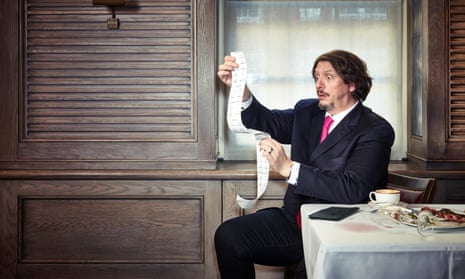Luxury never comes cheap, but some divine experiences are more expensive than others. Last week the Michelin two-star restaurant Alex Dilling at Hotel Café Royal on London’s Regent Street, had to defend its policy of charging solo diners double.
As the price for the seven-course tasting menu is soon to rise to £195 a head, for the likes of aged Kaluga caviar with Cornish crab, and Shetland cod with smoked butter and black truffle, that would mean a bill of £390 for one, before service and wine. The restaurant’s owner, Victoria Sheppard, argues that they are a small venture with just 34 covers across 11 tables. “We have ever-increasing staff and ingredient costs,” she told me. “Our business would simply not be viable without implementing this policy.”
In the depths of both huge challenges for the hospitality industry and a wider cost-of-living crisis, our appetite for fighting the corner of either side is arguably rather blunted. Won’t someone think of the struggling, ultra-luxe gastronomic restaurant? Or by contrast, won’t someone think of the cruelly treated, napkin-sniffing gastronome who merely wants to sit alone being pelted with caviar and truffles, while being hosed down with Cristal, all at a fair price? No, perhaps not.
But it would be a crying shame if the main takeaway from this whole episode is that eating alone in restaurants is a niche pursuit for the weird and the sad. It’s nothing of the sort. In the right circumstances it can be one of life’s most sublime adult pleasures: a great plate of food, a good bottle of wine you don’t have to share or compromise on, perhaps a great book and the certainty that the company is reliable. After all, a restaurant meal alone really should be with someone you love.
Of course, it’s not always so. Once, in Birmingham for work, I called around restaurants trying to book a table for one, only to be met repeatedly with bafflement. Eventually one receptionist had the guts to say what the others had clearly been thinking. “A table for one on Valentine’s night? Tough break.” I hadn’t clocked the date. I ended up in the “restaurant” of the Holiday Inn, alongside all the other sad, lonely travellers who happened to be on the road that night. What a bunch of losers.
That’s the stereotype, robust because occasionally it’s true. But it needn’t be. For a start, British restaurants have finally embraced the joys of counter eating, usually around an open kitchen. Who needs conversation when you have a floor show in front of you? Watch the flames leap, enjoy the attentions of the team on the other side of the counter, and when you’re bored with that turn back to your book or, of course, your phone. You’re eating alone. There’s no one here to judge you. Do what you like.
Or sit at a table and indulge in that other pleasure of solo dining: the people watching. Clock the couple over there, mirroring each other’s gestures in a way that makes it blatantly obvious this is the beginning of something beautiful. Shortly after dessert, they will surely be without their clothes, ideally once they’ve left the restaurant. Or look at that other couple who are clearly at the end of something; the ones with literally nothing to say to each other. It doesn’t matter if these readings are not true. This is your night out.
Curiously, the solo dining experience I don’t hugely enjoy is the one that initiated this debate: the single seat in a restaurant of gastronomic ambition. I’ve eaten alone in Michelin three-starred restaurants, always for my so-called job, and the waiters often appear to think you need a friend and they should be it. Dish descriptions become longer. Enquiries about your day are more personal. Approval of your menu choices become more effusive. When I eat out alone, I don’t need any of this. I’m here to show myself a good time. I’m here for the comfort of my own thoughts. I’m here for some great things to eat and drink. That is all.

